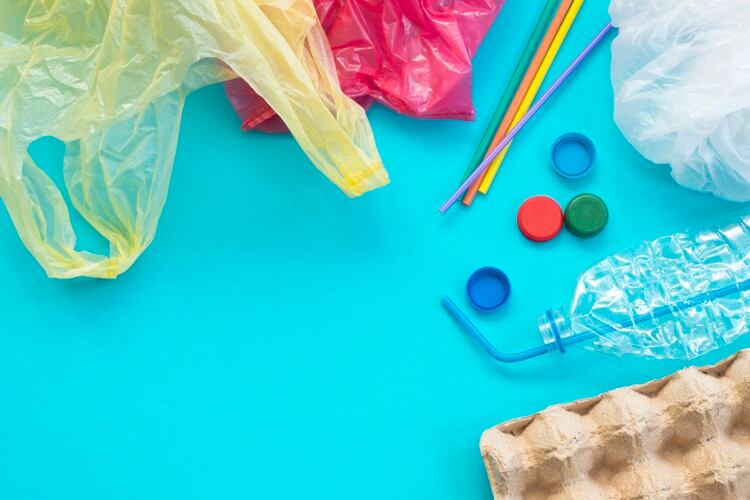
Consumers’ awareness of the environmental impact of human behaviour has never been higher.
Last year, the environmental breakdown dominated front pages around the world, from Greta Thunberg’s passionate speeches and the Extinction Rebellion protests, to dramatic images of bushfires, floods and the ‘plastic soup’ building up in our oceans.
Consumers, policymakers and campaign groups are ratcheting the pressure up on businesses in all areas to transition to the plastics of the future. This means the design and production of plastics as well as plastic products fully respecting reuse, repair and recycling needs, are in the crosshairs.
Conventional plastics contribute to environmental harm in two ways.
Firstly, they take a long time to degrade – if they do so at all.
Secondly, plastics production itself actively contributes to climate change: fossil oil is the main feedstock and many of the chemical processes needed are energy-intensive.
Aware of the need to change their daily habits to minimise their environmental impact, consumers are now actively demanding, and increasingly prepared to pay for, ‘circular’ products, where waste materials can be directly recycled into new items.
Faced with the need for packaging that maintains products’ longevity and differentiates their brand, businesses are actively looking for alternatives to the oil-based plastics they have relied on up to now.
New solutions to a familiar problem
The problem isn’t plastics themselves: without plastic wraps and packaging the F&B industry as we know it today wouldn’t exist. Rather, it’s how the plastics are made that needs to change. Since the first plastics were developed over a century ago, conventional wisdom has been that they can only be made from petrochemicals, in other words, oil.
However, change is in the air. A growing number of innovative companies and researchers around the world are making it their mission to discover new ways to create better plastics from sustainable sources, and ultimately transition to a renewable and circular chemical industry.
One approach - that Avantium follows - is to use plant matter as a feedstock, replacing fossil oil.
Using plant-based sugars (fructose), we are able to create a wide range of plant-based chemicals and plastics, which are every bit as robust and flexible as oil-based alternatives. One example is polyethylene furanoate (PEF). Though 100% plant-based and totally recyclable, PEF lends itself especially well to packaging: compared with polyethylene terephthalate (PET), it has better barrier properties for carbon dioxide and oxygen, and is mechanically stronger yet almost identical to handle. Less raw product is therefore needed to make better-quality packaging.
Yet, sustainable feedstocks only address half the problem. What happens to them after use is equally important.
Packaging labelled as ‘recycled’ often only contain around 30% of recycled material; the rest is new. Here, too, novel materials can provide answers. The recycling pathways for plant-based plastics are similar to ones for PET and others. Reuse and recycling are the primary answers to address concerns about circularity. As a safety-valve, one also should understand what happens to the plastic if it unintentionally ends in nature.
Experiments show Avantium’s PEF degrades faster in the environment – in months or years, rather than centuries – and therefore will not accumulate in the environment like conventional plastics.
The green premium opportunity
A commonly-voiced concern among many brands is that ‘green’ must also mean ‘expensive’. However, a growing body of evidence suggests that consumers are increasingly prepared to pay more to do the right thing.
A recent social sciences study from the University of Amsterdam on consumer behaviour showed consumers are willing to pay a ‘green premium’, with almost three-quarters of respondents (72.83%) stating they’d be prepared to pay more for a proven sustainable package compared to a more conventional counterpart.
Interestingly, a clear contributing factor to this willingness to pay more is guilt – most likely sparked by TV images that have made consumers reflect on their habits and strive to better themselves by making sustainable and circular choices.
Aside from its advantages in sustainability, it’s important to note that once Avantium proceeds to the flagship plant stage and begins production at commercial scale for its PEF, it will be highly competitive in terms of price compared to PET. So, in the future, consumers can feel good about purchasing these green products, without actually needing to pay more.
The tides of change are moving
Climate change is forcing whole industries to re-evaluate their dependence on fossil resources, and food is no exception. If anything, nationwide lockdowns in response to the coronavirus outbreak have only served to accelerate this trend.
Brands face many challenges in achieving the scale and pace of change consumers and policymakers demand. Fortunately, new technologies and materials are entering the market that can help them honour on their commitments – and make a bold step towards a sustainable, circular future.


